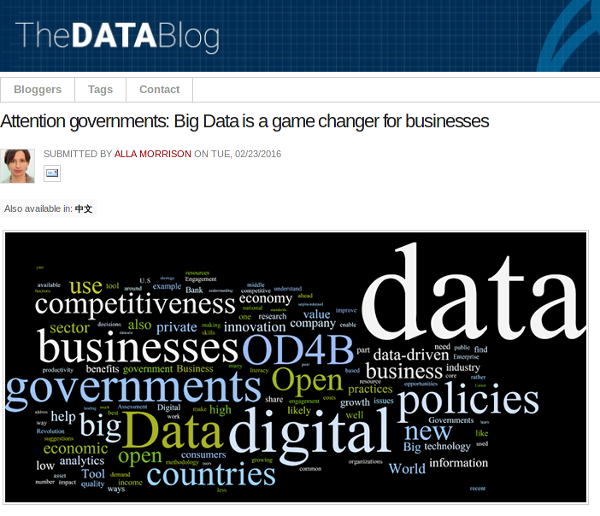Big Data is a game changer for businesses, Alla Morrison, International Development Specialist, Digital Economy and Solutions at the World Bank, recently wrote in a blog posting. She quoted Harvard professor Michael Porter, a globally recognised authority on competitiveness, who said: Data now stands on par with people, technology, and capital as a core asset of the corporation and in many businesses is perhaps becoming the decisive asset.
The value of any resource, however, depends heavily on the political, legal and economic ecosystem around it, Morrison wrote. There needs to be a carefully crafted system of policies to ensure that a country's data resources are used productively, with minimum waste or misuse, and that they are made available to businesses and entrepreneurs in a fair, competitive environment. What governments do (or fail to do) in this regard will likely shape up the competitiveness of their countries' businesses for the next generation,
Transforming industries
According to Morrison, in countries further along on its adoption curve, Big Data has already started to transform not only the IT sector itself but almost every business in every industry. She compares it to the first two Industrial Revolutions — the large-scale deployment of steam power and machines, and the construction of electricity networks, production lines and railroads, respectively.
Just like electricity production and distribution became an industry in itself, and led businesses in all sectors to redesign their processes to take advantage of this new resource, Big Data is transforming the business environment and changing the way companies compete with each other.
Hence the Fourth Industrial Revolution (successor to the Digital Revolution, being driven by computerisation and automation).
Data-driven economy
What government needs to do, according to Morrison, to enable a data-driven economy, is:
- engage in a national dialogue with businesses and citizens with a focus on the productive aspects and benefits of data-enabled innovation;
- encourage the movement of data between organisations and functions;
- promote common standards and procedures, including better use of metadata (data on data), to enhance data quality;
- gain fluency in benefits and risks of big data, so that they can make prudent, well-informed decisions and get the rules right;
- address data ownership, security, trusteeship, liability for misuse, open data, data literacy, R&D, procurement, as well as data flows across borders; and
- facilitate the availability of affordable broadband.


